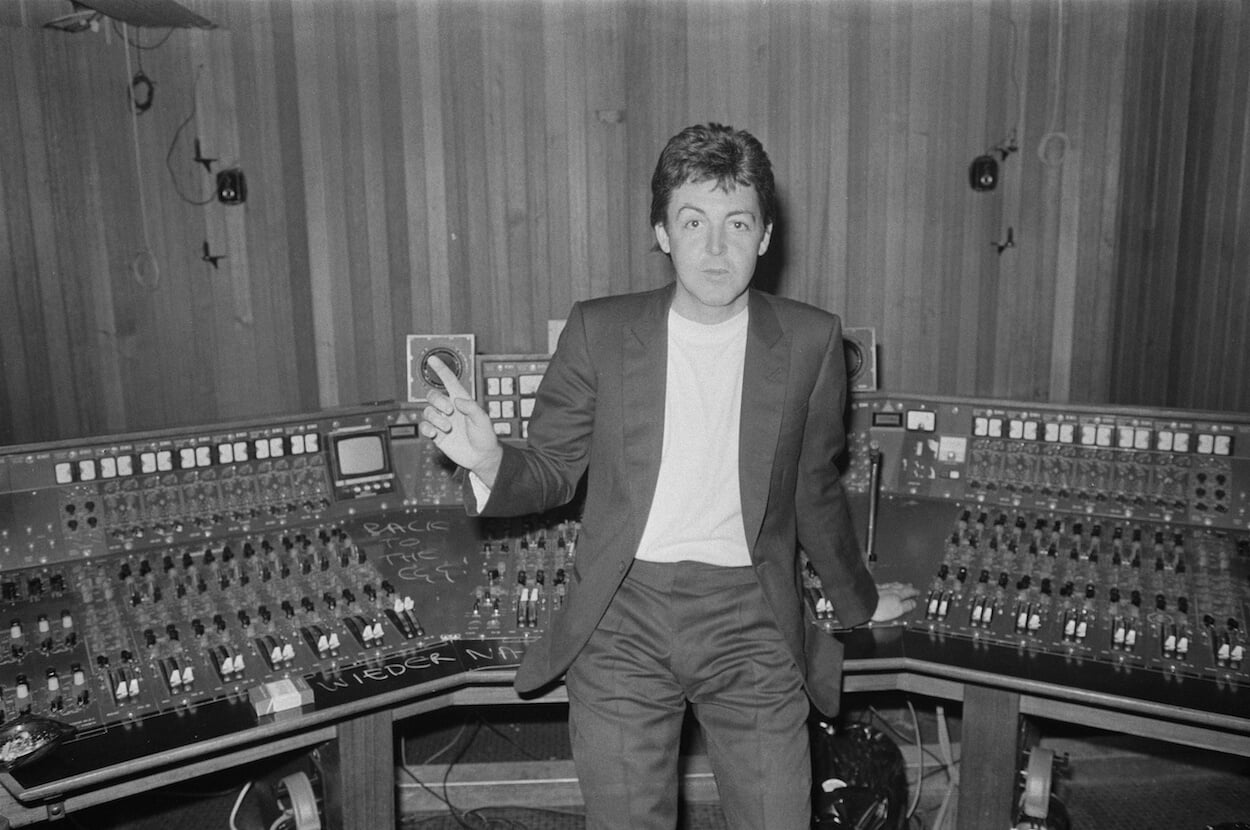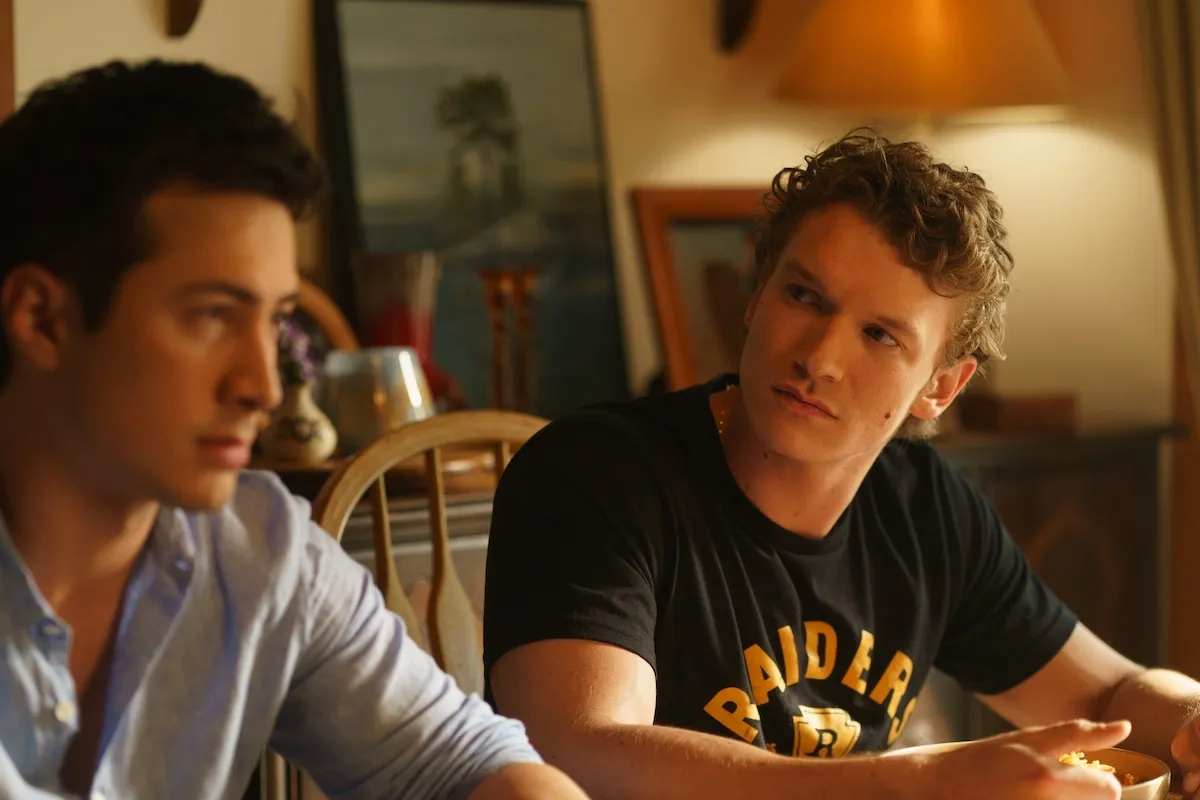
A Paul McCartney Contract Proved He Thought a Beatles Reunion Might Happen
The way The Beatles broke up seemed to make a reunion impossible. John Lennon once said he and Paul McCartney were so good they could have been The Beatles without George Harrison and Ringo Starr. That seems doubtful even though Paul and John wrote most of the songs. Still, John and Paul’s tattered relationship as the Fab Four fractured made regrouping next to impossible. Paul signed a contract that proved he believed a Beatles reunion might happen, but the closest they ever came to getting back together was a Ringo solo album.

Paul McCartney’s role in The Beatles break up
John said he first saw the end of The Beatles coming when manager Brian Epstein died. The Fab Four held on for more than two years after Epstein’s August 1967 death, but it wasn’t easy. Ringo walked out of the White Album sessions. George did the same while working on Get Back.
Paul took control of the Get Back sessions. He intended them to be a wistful return to the basics of the early years. Instead, they were some of the most contentious recording sessions of the band’s career: verbal barbs, indifference, George’s fistfight with John. Paul’s leadership style was hardly embraced by his bandmates.
Outside of the studio, Paul stood in a minority of one when The Beatles finally sought to hire a new manager in 1969. John, George, and Ringo wanted Allen Klein (who eventually got the job). Macca pushed for John Eastman, who later became his brother-in-law. Paul’s wedding ceremony with Linda Eastman in March 1969 showed how far apart The Beatles had grown. It was a social cue that the Beatles had drifted apart.
The damaged relationships made getting back together next to impossible. Still, Paul signed a contract in the late 1970s that proved he thought a Beatles reunion might happen.
Paul signed a contract that showed he felt a Beatles reunion might happen
Paul and John were the creating driving forces in The Beatles from the start. Their songs helped turn the band into international stars. Paul’s attempt to be the creative linchpin during the Get Back sessions was a nail in the band’s coffin. The band publicly called it quits in 1970 and all four members embarked on solo careers.
John and Paul had a loose jam session in the middle of the decade. What might have been the spark that ignited a new creative fire for the two songwriters instead fizzled and left both entrenched in their solo work. That was in 1974, and a Beatles’ comeback seemed as distant as ever.
Yet Paul’s contract with Columbia, signed in 1979, included a clause that allowed him to record for another label with Ringo, George, and John, according to the Trivia Book of the Beatles.
The contract was worth $10.8 million. Columbia likely could have inked Paul based on the financials alone. But according to The Oklahoman, Paul pushed for the clause to be included in his deal. Even if a Beatles reunion wasn’t just around the corner, Paul clearly thought a Fab Four comeback could happen someday.
Legal red tape (Ringo, George, and John would have required similar clauses in their contracts) would likely have derailed a Beatles comeback. Perhaps their bassist was playing the long game and setting himself up to be blame-free if the band ever considered regrouping. Yet considering he fought so hard to keep the band together in 1969, it seems likely Paul’s contract with Columbia and the clause within proved he thought a new Beatles record might happen someday.
A Ringo solo album was as close as we got to a Fab Four comeback
Paul, Ringo, and George gathered to collaborate on The Beatles Anthology series. The first album in the set included the trio fleshing out the John demo “Free As a Bird.” That and Ringo’s third solo album are the closest the world got to a Beatles reunion.
The drummer’s 1973 solo record was the first time since the breakup that all of The Beatles played on the same album. The quartet didn’t record in the same studio at the same time, but all four appeared on the album.
John dusted off “I’m the Greatest,” reworked the lyrics, and played piano on the for the first track on Ringo. Paul and Linda contributed “Six O’Clock.” George penned two tunes, including “Photograph,” which became Ringo’s biggest hit song of his solo career.
A Fab Four comeback would have been a rousing success (at least financially) no matter when it happened. Ringo Starr’s third solo album and a fleshed-out demo were as close as we came to a Beatles reunion, but Paul McCartney’s contract proved he thought a comeback could happen.
For more on the entertainment world and exclusive interviews, subscribe to Showbiz Cheat Sheet’s YouTube channel.


